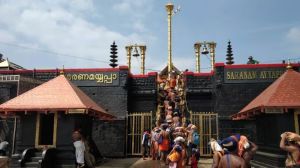Stay updated with the latest - Click here to follow us on Instagram
Mulayam pan-OBC alliance could be a non-starter
Efforts made by Samajwadi Party (SP) chief Mulayam Singh Yadav to forge a pan-backward caste alliance by bringing together all the OBCs on board is likely to unleash new political realignments in the caste dominated politics of Uttar Pradesh.
Efforts made by Samajwadi Party (SP) chief Mulayam Singh Yadav to forge a pan-backward caste alliance by bringing together all the OBCs on board is likely to unleash new political realignments in the caste dominated politics of Uttar Pradesh.
But at the same time,doubts are also being raised over the political efficacy of such an alliance and Yadavs ability to rope in the Kurmee community,which is numerically the second largest backward caste in the state.
The moment Mulayam Singh Yadav tries to emerge as the undisputed leader of the OBC consolidation,chinks in his armour would stand exposed,as he has no leader from the dominant Kurmee community which is numerically only a little smaller than the Yadavs, said Ashutosh Mishra,a political analyst.
Quoting from the book of Colonel Sleeman Rambling and Reflections,he said: Over 150 year ago,the British Army officer had written that the Lodhs are the younger brother of the Kurmees. Yadav has roped in the younger brother by joining hands with
Kalyan Singh,but where is the elder brother? Moreover,the Kurmees are a powerful landed peasantry spread across the state and crave for their due share in the cake of political power,he added.
In the recent past,quite a few Kurmee leaders have drifted away from Yadav because they felt they were not getting their due share in the SP.
Sone Lal Patel,president of Apna Dal a political party representing the Kurmee community said he was for the idea of a grand alliance of the OBCs and the Muslims,but you cannot trust Mulayam Singh Yadav.
He is in the habit of making tall claims whenever he joins hands with any party or leader. When he forged an alliance with the Rashtriya Janata Dal of Lalu Prasad Yadav,then he had also claimed that this is the real alternative, said Patel.
Another Kurmee leader,Beni Prasad Verma,who deserted the party after he found himself neglected by the growing clout of general secretary Amar Singh in the party,termed the SPs leaders proposed grand alliance as the enemy of the OBCs,and that it would alienate the backward castes from the mainstream politics.
Kalyan Singh never represented the political empowerment of the OBCs as he was the leader of the Ram Janma Bhoomi movement and is the symbol of Hindu fundamentalism. How can there be any consolidation of OBCs behind this alliance? said Verma. Mulayam Singh Yadav has joined hands with Kalyan Singh only to prevent a Yadav versus the rest electoral battle at his home turf of Etawah and neighboring Districts, he added.
Vivek Kumar,a Dalit ideologue and associate professor at Jawaharlal Nehru University,said whatever may be the political compulsions of the two leaders Kalyan Singh and Mulayam Singh that they decided to join hands after nearly two decades of the implementation of the Mandal commission,its too late in the day.
Due to the internal contradictions in the upwardly mobile OBCs,they cannot move along for long as each strata is demanding their share in political power according to their numerical strength,as happened in the states of south India, said Kumar.
Efforts at consolidation of OBCs may boomerang,these may evoke a reaction among the Brahmins and inadvertently strengthen the Sarvasamaj plank of Bahujan Samaj Party,said Kumar. Kalyan Singh can only compensate the loss due to the alienation of the Muslims from the Samajwadi Party.







